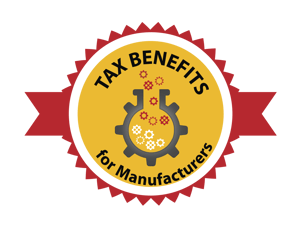 The Lehigh Valley has an incentive program that allows companies to improve cash flow, increase global logistics efficiency, and reduce redundant or unnecessary logistics costs.
The Lehigh Valley has an incentive program that allows companies to improve cash flow, increase global logistics efficiency, and reduce redundant or unnecessary logistics costs.
The incentive program – a Foreign Trade Zone, or FTZ – is a physical location within a United States custom territory where merchandise receives the same treatment as if it were outside the commerce of the United States. Therefore, by establishing an FTZ at their facility, a business can defer, reduce or altogether eliminate their customs duties and other tariffs or taxes.
Officials from the Lehigh Valley Economic Development Corporation, which oversees the program in the region, believe it’s underutilized and would like to get more companies qualified.
 The program is especially beneficial to manufacturers and distributors, and interest in growing in it due to current trade policies and increased tariffs, officials said. The FTZ program was created to help American companies be competitive in the global economy by reducing tariff burdens on the importation of foreign inputs and on exported finished products.
The program is especially beneficial to manufacturers and distributors, and interest in growing in it due to current trade policies and increased tariffs, officials said. The FTZ program was created to help American companies be competitive in the global economy by reducing tariff burdens on the importation of foreign inputs and on exported finished products.
While in an FTZ, merchandise may be assembled, exhibited, cleaned, manipulated, manufactured, mixed, processed, relabeled, repackaged, repaired, salvaged, sampled, stored, tested, displayed, and destroyed. And if the merchandise never enters the U.S. commerce, then no U.S. duties or taxes are ever paid on those items.
READ MORE: Lehigh Valley Manufacturers: Where to Find Import-Export Assistance
Lehigh Valley companies using the FTZ program include Primark, Piramal Critical Care, BMW of North America, Grundfos Pumps Manufacturing Corporation and the Cooper Tire Distribution Center.
Here are two examples of how they’ve used the program:
Primark is an Irish fashion retailer with a distribution center in Bethlehem. The company had imported goods for a clothing store that had been expected to open in October, but after the opening was pushed forward multiple months, all those goods had to be exported back to Primal’s European warehouses, company officials have said. The FTZ saved them a lot of tariffs on the return shipping.
Piramal is a manufacturer of inhalation anesthesia products based in Hanover Township, Northampton County. The company uses FTZ to defer tariffs on their imported raw materials until they are brought into their local facility. Once there, Piramal used the materials to make their finished product, which they could then move into customs duty-free, according to company officials.
From there, they could ship the products to customers throughout the world without the added costs they would have sustained without the FTZ, allowing them to stay competitive in the global marketplace. Approval of the FTZ has saved Piramal millions of dollars over a course of years, company officials previously said.
While the Lehigh Valley companies that currently use the FTZ program are large, economic development officials said it’s worth it for some medium-sized companies to see if they might benefit.
Companies interested in learning more about the program can contact LVEDC Vice President of Economic Development & Marketing Matthew Tuerk at mtuerk@lehighvalley.org or at 610-266-2216.





